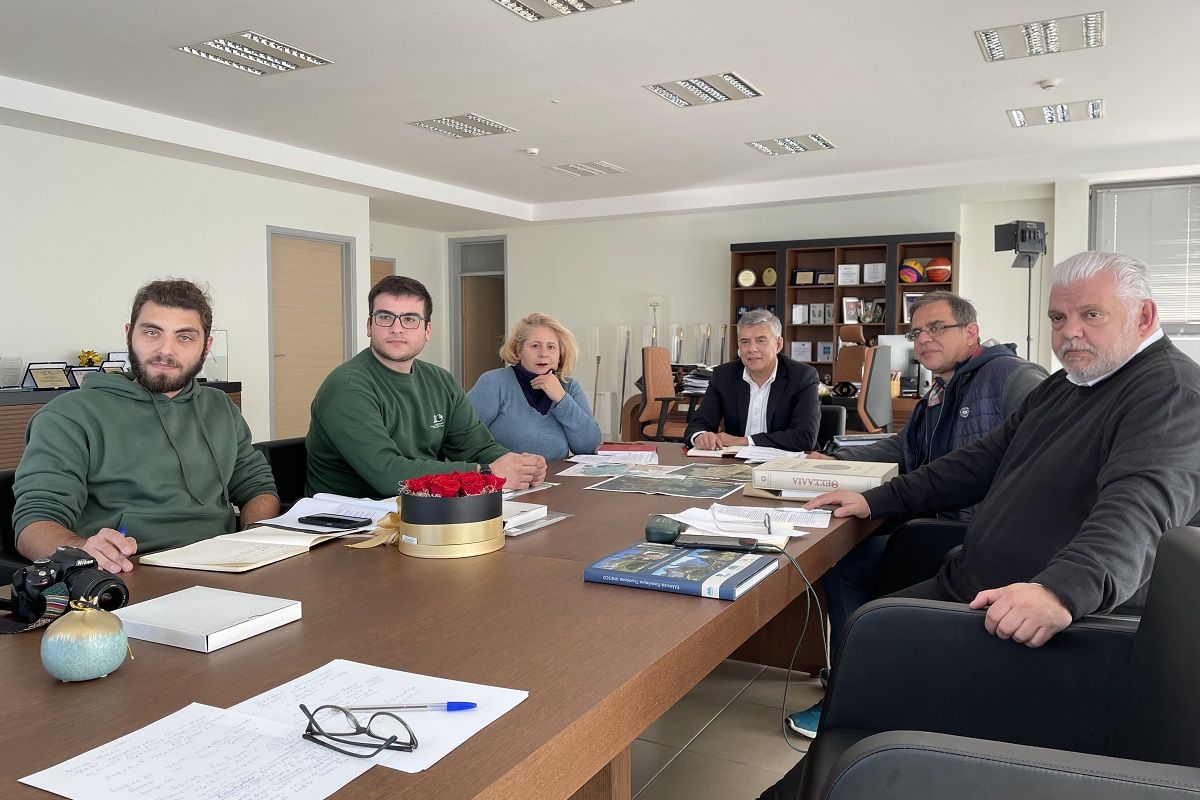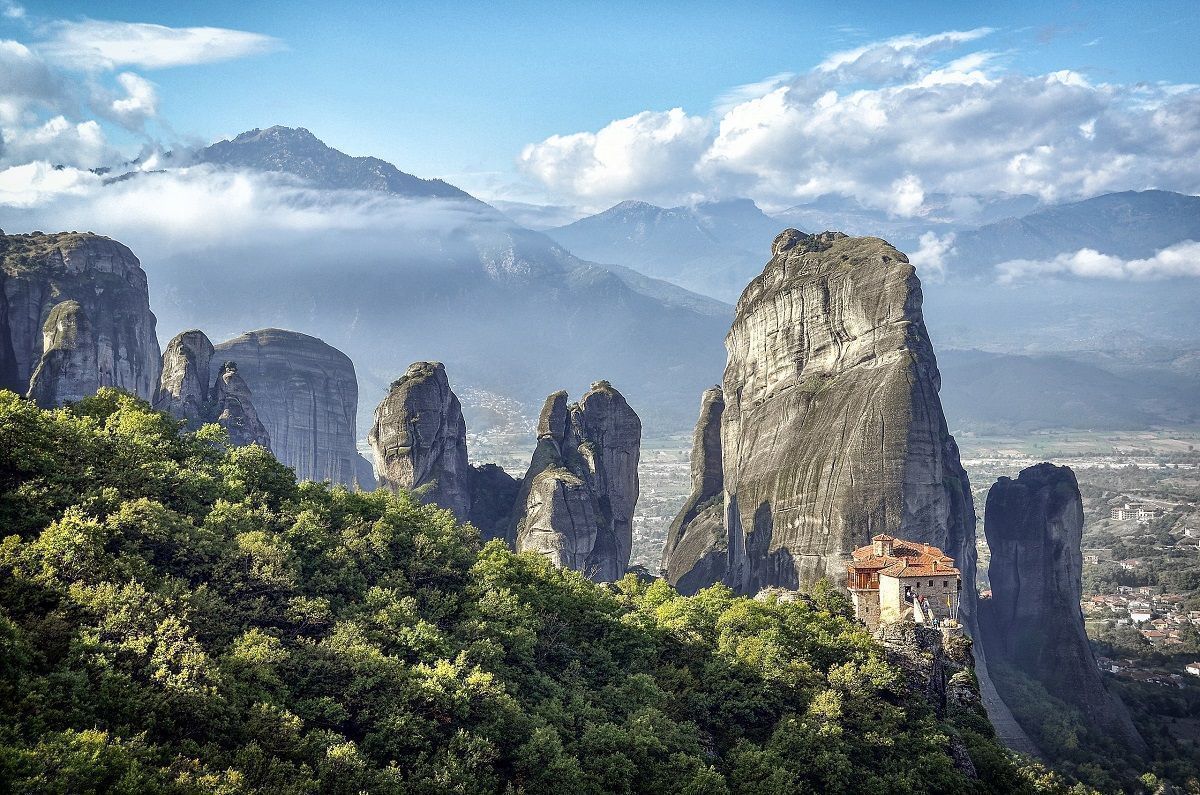Thessaly Submits Application to UNESCO for Meteora-Pyli to Get Global Geopark Status
The Region of Thessaly recently submitted a nomination file to UNESCO in order for the municipalities of Meteora and Pyli to gain recognition as a UNESCO Global Geopark (UGGp).
The file’s submission follows an agreement signed last year between Deputy Environment Minister Giorgos Amyras and Thessaly Governor Kostas Agorastos aiming to protect the area connecting the two sites and further promote its natural beauty.
According to an announcement by the Region, the nomination file was compiled in collaboration with the Natural Environment and Climate Change Agency (OFYPEKA), overseen by the president of the Global Geopark Network, Nikolaos Zouros, and supported by the Trikala Chamber.

(From left):Aegean University Professors Manolis Antonakis and Angelos Labrakopoulos; Project manager Mara Samara; Thessaly Governor Kostas Agorastos; President of the Global Geopark Network Nikolaos Zouros; Tourism Deputy Governor Yannis Boutinas. Photo source: Region of Thessaly.
During a recent meeting held at the office of the Region of Thessaly, Governor Agorastos discussed further actions to be carried out in view of the candidacy evaluation by the UNESCO International Committee, which will visit the area during summer 2023. The meeting was attended by Zouros, Tourism Deputy Governor Yannis Boutinas, Aegean University Professors Manolis Antonakis and Angelos Labrakopoulos and the project’s manager Mara Samara.
“The Meteora – Pyli Geopark will make Thessaly part of the global nature tourism map,” Agorastos said, adding that the area of the geopark has already been established alongside its first 25 points of interest, while their online promotion is also in the works.
The Meteora -Pyli Geopark will cover an area of 2,409.5 square kilometers offering a natural environment with landscapes of natural beauty and will include the Meteora rock formations, a UNESCO World Heritage site.
The Region of Thessaly hopes that the recognition of the Meteora-Pyli area as a UGGp will upgrade the destination’s tourism identity and offer alternative and sustainable tourism development opportunities for the local community and a unique travel option for visitors from abroad.
Greek sites currently recognized as UNESCO Global Geoparks include the areas of Chelmos–Vouraikos, Lesvos Island, Psiloritis and Sitia on Crete, Vikos – Aoos, Grevena – Kozani and Kefalonia–Ithaca.






